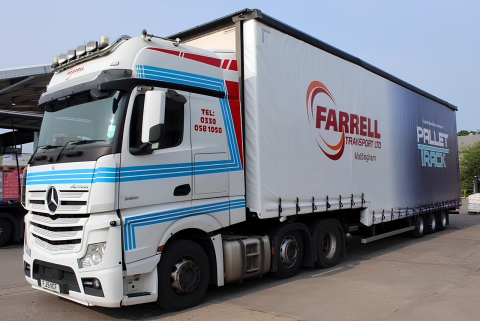

Hauliers using the Eurotunnel at Folkestone could face significant delays when a new automated EU border system goes live next month, the Road Haulage Association (RHA) has warned. The RHA says the disruption will depend on whether there are enough French border staff to process drivers.
The new Entry/Exit System (EES) is set to launch on October 12, replacing the current practice of manually stamping the passports of non-EU visitors. The new system will be gradually rolled out across European ports.
Under the new arrangements, UK freight drivers will be directed into a dedicated lane. After passing through UK passport control, they will move on to French booths, where their biometric data will be taken by French officials before their passports are scanned.
RHA international group manager, Heather Wallace, was at the Eurotunnel Folkestone Terminal last week as preparations for the new system were underway. She told the CM sister title Motor Transport that while the EES will "definitely launch on October 12, and traffic will flow, there could be delays, depending on how many French border officials are available." Wallace noted that Eurotunnel has no control over the staffing levels of French border guards.
The RHA also commented on the situation, stating: “It’s anticipated both coach and freight will go through the EES process from the 12 October ‘go live’ date, but this may be subject to French border officials’ staffing availability.”
Tourist traffic is not expected to be phased in until November 1, though this date has yet to be confirmed. The new system will be phased in over six months across participating European countries, meaning different ports may have varying requirements until April 2026. The RHA believes this gradual approach should help to minimise disruption, especially during peak travel times.
British travellers will be required to register on their first visit to a participating country after the EES is introduced. This registration will be valid for a three-year period or until their passport expires.
“We continue to work with our fellow stakeholders to ensure the needs of operators are fully appreciated and will update in due course,” the RHA added.




_17-09-2025-07-19-39-170.png)







